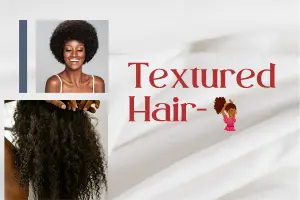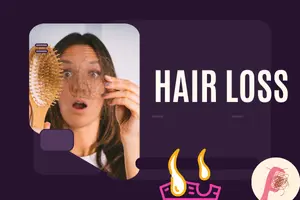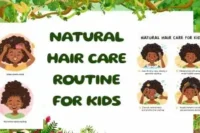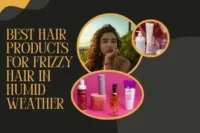Advantages and Disadvantages of Hair – Your Complete Guide
Published: 27 Oct 2024
Hair is more than strands growing from our heads. It has meaning, history, emotion, and even science behind it. Whether you love styling it or struggle with its upkeep, your hair plays a big role in how you see yourself and how the world sees you. From boosting confidence to creating social pressure, there are many advantages and disadvantages of hair. This guide explores both sides.
Advantages and Disadvantages of Hair
Hair plays a big role in how we look and feel. It lets us express our style, culture, and mood. But hair care isn’t always easy; it can get dry, damaged, or fall out—making a reliable hair care guide essential for maintaining healthy, vibrant strands.
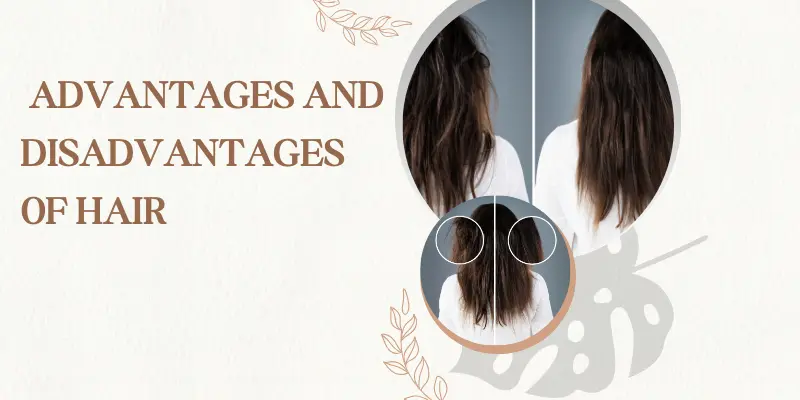
While hair gives us confidence, it also presents challenges that require smart care.
The Advantages of Hair
Hair plays a key role in protecting the scalp from sun exposure and regulating body temperature. It also enhances personal style and confidence, especially when cared for with the Best Hair Brushes that suit your hair type and needs.
Boosts Self-Image and Artistic Expression
Hair is often called your “crowning glory” and for good reason. It’s a powerful tool for self-expression. You can color it, braid it, straighten it, or leave it natural. People use hair to show creativity or embrace tradition.
Personal Story: I remember my first big chop. After years of straightening my hair, I went natural. At first, it felt risky. But seeing my curls bounce for the first time in years felt like meeting a hidden version of myself. Hair can deeply influence self-worth.
Sensory and Protective Function
Hair isn’t just decorative, it’s functional. Hair follicles contain nerve endings that detect even the slightest movements. This helps protect you from insects or sudden temperature changes.
Hair on your scalp also shields you from sun damage and insulates your head in colder climates. Think of it as nature’s built-in climate control.
The Disadvantages of Hair
While hair adds beauty and protection, it can also come with certain downsides, such as breakage, tangling, and scalp buildup. The image below highlights common hair-related challenges that can be managed with proper care and the right Hair Brushes.
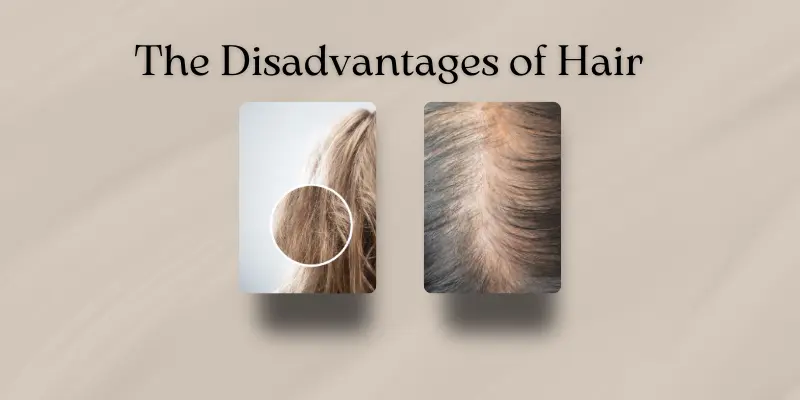
Now that you’ve seen some of the disadvantages, let’s look at how to overcome these issues with effective hair care practices and daily maintenance tips.
High Maintenance
Hair care takes time, money, and patience. From shampoos and conditioners to styling tools and treatments, maintaining healthy hair can feel like a full-time job.
Example: Someone with coily hair may spend hours detangling and moisturizing, while someone with fine hair might need to wash more frequently to avoid greasiness. Hair maintenance isn’t one-size-fits-all; it’s deeply personal.
Thinning and Hair Loss
Hair loss, whether due to aging, stress, hormones, or medical issues, can be emotionally taxing. Men may deal with male-pattern baldness; women often experience postpartum or menopausal thinning. This Hair Loss Guide explores how these challenges can affect confidence and mental health—and what you can do about them.
Treatments like transplants or wigs help, but they’re not always affordable or effective.
Hygiene and Scalp Issues
If you don’t care for your hair properly, it can attract dirt, oil, and bacteria. This leads to problems like dandruff, itching, fungal infections, or even lice.
On the flip side, over-washing or over-styling can weaken hair, leading to breakage and dryness. Tight hairstyles may also cause traction alopecia.
Social Pressure and Stereotypes
Cultural and societal expectations often shape how people feel about their hair. Some communities value long, straight hair; others celebrate natural textures. But trying to fit in can feel exhausting.
Example: The natural hair movement among Black women fights against pressure to conform to Eurocentric beauty norms. For years, relaxing or straightening hair was seen as more “professional,” even though it damaged natural curls.
Such norms create anxiety and emotional strain.
Who Is This Article For?
This article is for readers aged 15 to 45 who are curious about hair care, personal grooming, or cultural aspects of hair. Whether you’re dealing with hair loss, exploring styles, or simply want to understand your hair better, this guide meets your needs with relatable insights.
Conclusion
Hair is personal, powerful, and sometimes problematic. It’s a part of who we are emotionally, culturally, and biologically. From boosting confidence to causing stress, the advantages and disadvantages of hair touch almost every area of life.
Managing hair is about more than products; it’s about self-acceptance and emotional strength. Whether you wear it natural, styled, or shaved, your hair is yours to define.
FAQs
Hair does much more than just look good it provides protection and serves functional purposes. It shields the scalp from UV rays, cushions against minor injuries, and helps regulate temperature by providing insulation. Beyond biology, hair is a major part of personal identity and cultural expression. Through styles, colors, and cuts, it becomes a unique way to showcase individuality.
Yes, hair strongly influences self-esteem and confidence. A fresh haircut, color, or style can instantly change how someone feels about themselves. Many people view hair as a form of self-expression, so when it looks good, it can uplift their mood and improve their outlook. That’s why salons and barbershops are often linked to both beauty and emotional wellness.
Hair care can feel time-consuming because every hair type has different needs. Curly, coily, fine, or color-treated hair all require tailored products and methods to stay healthy. Regular washing, conditioning, styling, and protective care take effort and consistency. This dedication helps prevent damage, dryness, and breakage, ensuring your hair remains strong and beautiful.
Hair loss can result from many factors, both internal and external. Genetics play the biggest role, but stress, poor diet, and hormonal changes can also trigger shedding or thinning. Medical conditions like alopecia or thyroid disorders may worsen it further. In some cases, harsh styling practices or chemical treatments also contribute to long-term damage.
Yes, neglecting proper hair hygiene can impact scalp health. Not washing regularly can lead to excess oil buildup, dandruff, or fungal infections. Over-styling with heavy products and poor cleansing can clog follicles, making hair weak and prone to breakage. In extreme cases, poor hygiene may even attract lice or worsen scalp irritation.
Society and culture heavily shape how people feel about their hair. Beauty standards often promote certain textures, lengths, or colors as more desirable, which can affect confidence and self-image. This pressure leads many to spend time, money, and effort trying to “fit in.” Celebrating natural hair diversity helps break down these stereotypes and promotes self-acceptance.
Traction alopecia is a type of hair loss caused by constant pulling or tension on the scalp. Styles like tight braids, ponytails, or extensions can stress the follicles, leading to thinning around the hairline. Over time, repeated strain may cause permanent damage if left untreated. Loosening hairstyles and giving hair breaks can prevent it.
Natural hair isn’t harder — it’s just different from chemically treated or straightened hair. It often needs more moisture, protective styles, and gentle handling to avoid dryness and breakage. With the right products and techniques, caring for natural hair becomes easier and more enjoyable. The key is consistency and patience with your routine.
Yes, washing too frequently can strip away your scalp’s natural oils. This leaves the strands dry, brittle, and prone to breakage. Over-cleansing can also irritate the scalp, leading to flakes or sensitivity. Instead, washing every few days (or weekly, depending on hair type) helps maintain balance and moisture.
Hair loss can deeply affect someone’s emotional well-being. Since hair is tied to identity and appearance, losing it often causes insecurity, sadness, or anxiety. For some, it may even lead to depression or withdrawal from social situations. Support from loved ones and exploring treatments or wigs can help restore confidence and positivity.

- Be Respectful
- Stay Relevant
- Stay Positive
- True Feedback
- Encourage Discussion
- Avoid Spamming
- No Fake News
- Don't Copy-Paste
- No Personal Attacks

- Be Respectful
- Stay Relevant
- Stay Positive
- True Feedback
- Encourage Discussion
- Avoid Spamming
- No Fake News
- Don't Copy-Paste
- No Personal Attacks
